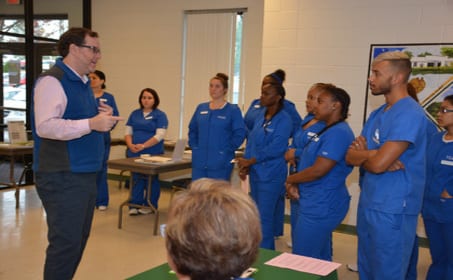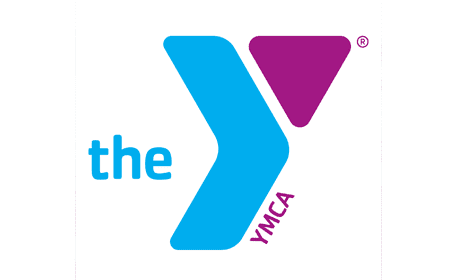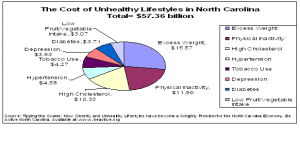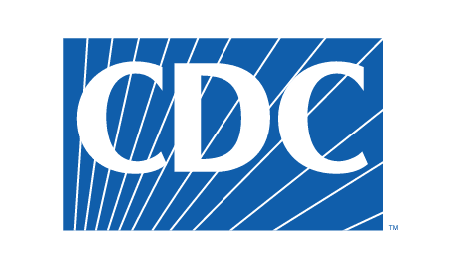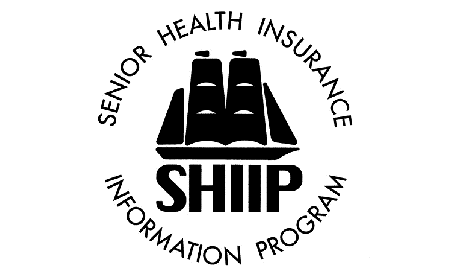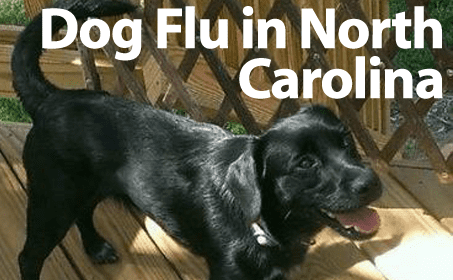VGCC registers 350 potential lifesavers
A recent Vance-Granville Community College service project added some 350 people to the registry of potential bone marrow donors. In partnership with the Project Life Movement and the “Save the Fox” campaign, the college held events on each of its four campuses during the week of Oct. 26-29.
Students, faculty, staff and community members signed up and swabbed their cheeks to provide DNA samples at these events. The painless registration process took only a few minutes, but could save a life if a participant turns out to be a match for someone in need of a bone marrow transplant. Such treatments are the only hope for many people diagnosed with leukemia, lymphoma, sickle cell anemia and other blood cancers and diseases. Around 60 percent of those in need of a donation currently cannot find a donor match, according to Project Life, a national movement that started with students at Davidson College and has spread to more than 25 other schools and has registered more than 13,000 donors.
The “Save the Fox” campaign is named after North Carolina Superior Court Judge Carl Fox of Orange County. Judge Fox was diagnosed with blood cancer in April and has searched for a suitable bone marrow donor.
At a kickoff event on Oct. 26 at VGCC’s Main Campus in Vance County, Dr. Stelfanie Williams, the college president, welcomed participants and commended the students, faculty and staff who contributed their time and energy to the project. “I love it when we take these opportunities to integrate service with learning and to give back to the community,” Dr. Williams said. “Like the students at Davidson College who started Project Life, our students are leaders of the future and can make a difference.” She particularly thanked the students in VGCC Health Sciences programs who took the lead in the registration drive. The very first student to register as a potential donor was Kala Williams of Henderson, a Pharmacy Technology major.
Also speaking at the kickoff was Project Life executive director David Lindsay, who received a successful bone marrow donation and helped found the organization with his fellow students at Davidson College. He thanked all of the participants in the VGCC registration drive. “This will create more chances that a patient like Judge Fox or a patient like me 25 years ago will have a second chance at a miracle,” Lindsay said. “That’s what the drive is all about: creating the possibility for miracles. Potentially everyone in this room is a match for someone you don’t even know.”
He noted that the decision to register as a potential donor, particularly for a young person, would have an impact for years to come. “Students who are 20 will be on the registry for 40 years,” Lindsay said. “Think about what it would feel like to get a call, find out you’re a match, and save someone’s life. I’m glad that Vance-Granville is now part of the Project Life movement, and I hope it becomes an annual event because the potential is immense.”
Attendees then heard remarks from VGCC Financial Aid Assistant Glynnis Wilson, who actually saved a life as a bone marrow donor. She was on the registry for more than eight years until 2006 when the National Marrow Donor Program called, informing her that she was a match. “People ask me if it hurt when I donated bone marrow,” Wilson said. “I always say that whatever I felt was nothing compared to what my recipient had endured. I would do it again in a heartbeat.”
VGCC Radiography student and Save the Fox student leader Nick Kemp of Franklinton thanked all of the volunteers who made the drive a success. “What we are really working for is the opportunity to make a difference in someone’s life, hopefully multiple people’s lives,” Kemp said. “Everyone who registers is a potential lifesaver, maybe not for Judge Fox but perhaps for one of the hundreds of thousands of other people who are looking for a match.” He said that those who registered could look forward to a day “when your phone rings and you get the opportunity to help a fellow human being in need. I don’t know about any of you, but I hope my phone rings sooner rather than later.”
VGCC academic and career coach Seletha Pherribo, who helped spearhead the project, said that Save the Fox had helped unite the college and the community. After the first day at Main Campus, events were held at the Franklin County Campus on Oct. 27, the South Campus in Granville County on Oct. 28 and the Warren County Campus on Oct. 29. Pherribo thanked Project Life for its support. Project Life works with the Delete Blood Cancer organization to process the new potential donors. For more information on becoming a donor, visit www.projectlifemovement.org or www.deletebloodcancer.org.

